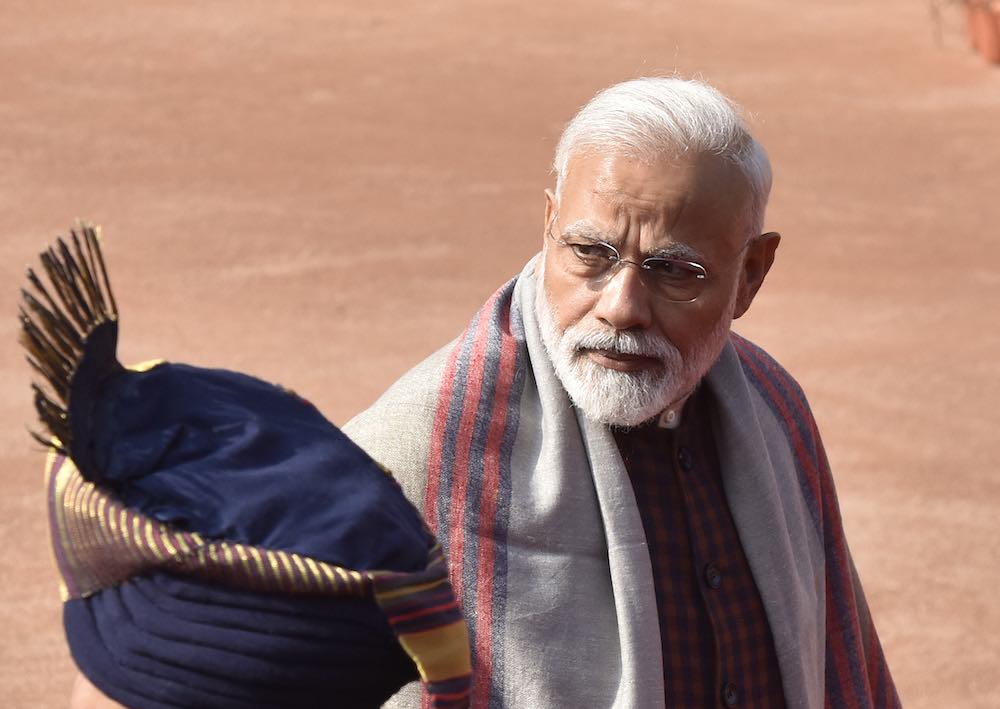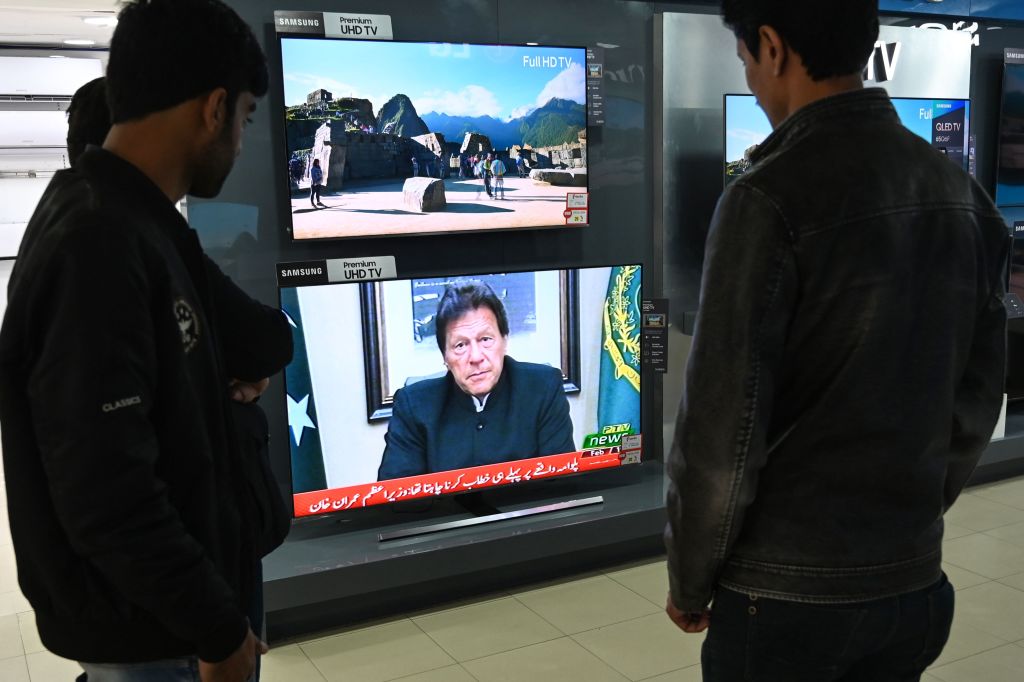The Pulwama attack was clearly calibrated to pile pressure on Indian Prime Minister Narendra Modi in the run-up to the general election to be held in April and May 2019. The location and the target – paramilitary police deployed in Kashmir as part of an on-going effort to quell unrest that has flared repeatedly during Modi’s time in office – were carefully chosen. So too was the bomber, 22-year-old Kashmiri, Adil Ahmad Dar, a young local man Indian media say was harassed and humiliated by Indian security forces during an earlier upsurge of violence in 2016.
If Modi acts too rashly, there could also be very serious consequences, up to and including war with Pakistan involving a nuclear exchange.
Above all, the suicide bombing was intended to undercut Modi’s claim to have successfully deterred Pakistani-based groups – and their alleged handlers in the Pakistani state – from carrying out such attacks in India. Soon after 14 February attack, militant group Jaish-e-Mohammed (JeM) – a group widely thought to be based in Pakistan and sponsored by elements within the Pakistani state – claimed responsibility. Yet Modi’s claim of deterrence stems back to the dramatic punitive cross-border raids conducted by Indian special forces in late September 2016, which destroyed a number of camps in Pakistani-administered Kashmir and killed an unknown number of militants.
These “surgical strikes” – now the subject of a nationalistic blockbuster movie currently being shown in Indian cinemas – are trumpeted by the Modi government as a demonstration of India’s will and capacity to punish those responsible for terrorist attacks, wherever they come from and wherever they hide. Just a couple of weeks ago, during a budget speech, one of Modi’s senior ministers, Piyush Goyal, went off-script to tell voters to go out and watch Uri, the film about the 2016 raids, and revel in India’s triumph.

The Pulwama bombing, the deadliest terrorist attack India has suffered in two-and-a-half years, thus puts Modi in a bind – and one partly of his own making. Now, many Indians are angry, and demanding action from Modi comparable to those earlier raids. If his government’s response to the attack is perceived by an angry Indian public to be too weak, Modi risks losing his reputation as a “strongman” and losing votes at the polls. But if he acts too rashly, there could also be very serious consequences, up to and including war with Pakistan involving a nuclear exchange.
To make matters worse, India’s military options for retaliating against both JeM and its alleged Pakistani handlers are limited – and we can be sure that Islamabad is working hard to make them more limited still. The 2016 raids had the element of surprise. While not unprecedented, they were far more ambitious than anything India had attempted for some time. We can be assured, however, that Pakistan’s forces will have carefully studied what they know about them, and developed better counter-measures. It is likely too that the militant training camps have moved to safer locations.
Airstrikes on targets inside Pakistan – which some Indian commentators favour – would also be difficult. The country’s air defences have recently been strengthened with new Chinese systems and will now be on high alert. Then there is the danger that any military action could provoke a wider crisis in which events could spiral beyond ready control. In a televised address following the Pulwama attack, Pakistan’s Prime Minister Imran Khan promised that the country would retaliate if India uses force.

Whether or not that threat is credible is a moot point – after all, in 2016, Islamabad chose to pretend that India’s “surgical strikes” did not happen – but it cannot be ignored. Nor can the fact that Pakistan’s strategy for managing an armed conflict with India relies on rapidly ascending the ladder of escalation. Conscious that the Pakistani military is at numerical and qualitative disadvantage to India’s, that strategy envisages using nuclear weapons to halt any advance by the latter’s conventional forces, even if it means using them on its own territory.
Past terrorism-induced crises involving India and Pakistan – such as the assault on the parliament complex in New Delhi by JeM and Lashkar-e-Taiba militants in 2001 – have eventually dissipated thanks to a combination of local restraint and third party diplomatic intervention. The military standoff following that incident finally ended after talks brokered by the George W. Bush administration. Washington persuaded Islamabad to issue a statement deploring the attack and pledging – insincerely, as it turned out – to curb terrorist activity within its borders, and New Delhi moved to bring its forces back from the brink.
Today, the circumstances are very different. Modi cannot delay his response. With a general election looming, he needs to act quickly if he is going to fulfill his promise to deliver a “befitting reply” to the Pulwama attack and ensure the perpetrators pay a “heavy price” for their actions. And with India’s “blood … boiling”, by his own admission, a purely diplomatic approach would be difficult to sell to the electorate. Moreover, neither Modi nor Imran Khan can rely on Washington to engage in the kind of nuanced and patient intervention needed in such a crisis, as their predecessors could almost two decades ago. Time and Trump are not in Modi’s – or South Asia’s – favour.

